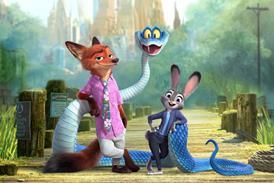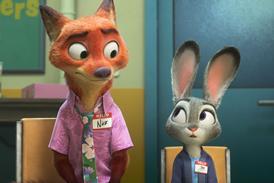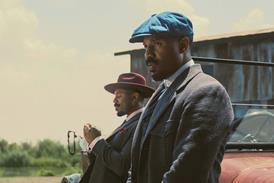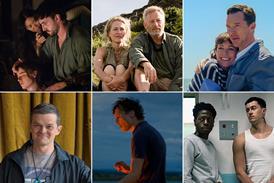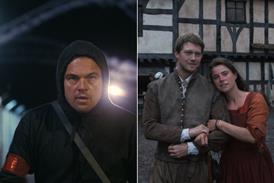Dir: Mohamed Al-Daradji. Iraq-UK-France-Germany-Palestine-United Arab Emirates-Egypt. 2009. 90 mins
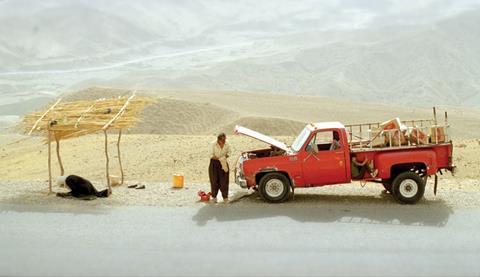
No festival in its right mind is likely to resist such a well-intentioned, painfully human journey across the devastated Iraqlandscape, as burning a topic today as it was on 2003, whenthis plot takes place. Perfect example… the number of countries participating in its production.
Al-Daradji’s road movie delivers an emotional wallop at first sight.
Though a natural for the politically correct art house niche, its place there may be partially hindered not only by its slow, elaborate pace and thin plot, but even more so by the flood of images coming out of Iraq in recent years, which risks desensitising general audiences and driving them to the brink of indifference.
Following Saddam Hussein’s demise, an old Kurdish woman l(Hussein) eaves her home village in the company of her grandson (Taleeb), to look for the boy’s father, gone missing 12 years ago, who, she wants to believe, is in a prison at the other end of the country.
The old woman speaks only Kurdish and has to rely at all times on the boy for some kind of communication with the world around her. They walk, hitchhike, squeeze themselves into packed, derelict buses, as they cross a Baghdad, ruined and covered in rabble, to reach their final destination, the Nasyriah prison, where they find out, predictably enough, there are no traces of the absent parent.
From there on, they continue to wander from one mass grave to another, looking at least for the body, once there is no hope of finding the man alive.
Shot in documentary style and helped along by a remarkable choice of performers whose unstudied expressions are far more convincing than any thespian effort, Al-Daradji’s road movie delivers an emotional wallop at first sight, but on second thought, the portrait he draws does raise some questions.
The uniformly kind-hearted people encountered by the two protagonists seem a bit too good to be true, the absence of any ethnic and religious animosity (speaking no Arabic is the best way to identify the old woman as “the other”), particularly in a country torn apart by these conflicts, is rather strange. Even the one objectionable character, a former Saddam soldier who obeyed orders and massacred Kurdish victims, turns out to be a perfectly a nice, contrite human being. Evidently, Al-Daradji prefers, if not forgetting, at least forgiving. Hopefully, he is not the only one.
Production company: Human Film
International sales: Roissy Films
Producers: Isabelle Stead, Atia Al-Daradji, Mohamed Al-Daradji. Dimitri de Clercq
Screenplay: Jennifer Norridge, Mohamed Al-Daradji, Mithal Ghazi
Cinematography: Mohamed Al-Daradji, Duraid Al-Munajim
Editor: Pascale Chavance, Mohamed Jbara
Music: Kad Achouri
Main cast: Yasser Taleeb, Shehzad Hussein, Bashir Al-Majid












